

Partner Bobbie Andrews
Queer Places:
Llwyn yr Eos, 95 Cowbridge Rd E, Cardiff CF11 9AG, UK
University of Oxford, Oxford, Oxfordshire OX1 3PA
55 New Bond St, Mayfair, London W1S 1DG, UK
Novello Theatre, 11 Aldwych, London WC2B 4LD, UK
143 Sutherland Ave, Maida Vale, London W9, UK
Redroofs, Redroofs/School La, Littlewick Green, Maidenhead SL6 3QY, UK
Golders Green Crematorium, 62 Hoop Ln, London NW11 7NL, UK
St Paul Covent Garden, Bedford St, London WC2E 9ED, UK
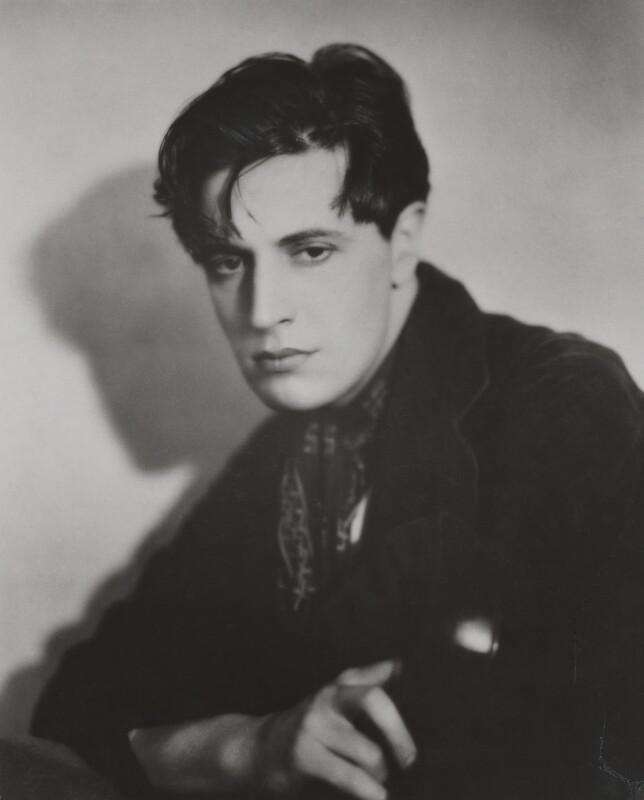 Ivor Novello (15 January 1893 – 6 March 1951), born David Ivor
Davies, was a Welsh composer and actor who became one of the most popular
British entertainers of the first half of the 20th century. Among the roll
call of figures that activist Peter Tatchell announced under the heading
of ‘famous homosexuals’ are
Lord Mountbatten, Florence
Nightingale, Lawrence of
Arabia, Catherine
Cookson, Winston
Churchill, and
William Shakespeare. Churchill, whom Tatchell includes on the basis
that he had a ‘fling’ with Ivor Novello, stands for those who ‘had only
one-off gay encounters’. Some of the iconic gay figures from the two
world wars that are well known included
Wilfred Owen,
Lawrence of Arabia,
Roger Casement,
Ivor Novello and
Alan Turing.
Ivor Novello (15 January 1893 – 6 March 1951), born David Ivor
Davies, was a Welsh composer and actor who became one of the most popular
British entertainers of the first half of the 20th century. Among the roll
call of figures that activist Peter Tatchell announced under the heading
of ‘famous homosexuals’ are
Lord Mountbatten, Florence
Nightingale, Lawrence of
Arabia, Catherine
Cookson, Winston
Churchill, and
William Shakespeare. Churchill, whom Tatchell includes on the basis
that he had a ‘fling’ with Ivor Novello, stands for those who ‘had only
one-off gay encounters’. Some of the iconic gay figures from the two
world wars that are well known included
Wilfred Owen,
Lawrence of Arabia,
Roger Casement,
Ivor Novello and
Alan Turing.
Privaely Ivor Novello would have liasons with actors from the casts of his shows, chorus boys, and any other presentable gentleman who happened to stray into his circle. His 1987 biographer, James Harding, said: Bizarre stories were told about him in London society. Somerset Maugham once remarked in old age to Winston Churchill: `Winston, your mother often indicated that you had affairs in your youth with men.' Not true!' said Churchill. 'But I once went to bed with a man to see what it was like.' Who was it?' Ivor Novello."And what was it like?" Musical', replied Churchill committing a pun, since 'musical' was then the cant word for gay.
Ivor Novello was born into a musical family, and his first successes were as a songwriter. His first big hit was "Keep the Home Fires Burning" (1914), which was enormously popular during the First World War. His 1917 show, Theodore & Co, was a wartime hit. After the war, Novello contributed numbers to several successful musical comedies and was eventually commissioned to write the scores of complete shows. He wrote his musicals in the style of operetta and often composed his music to the librettos of Christopher Hassall.
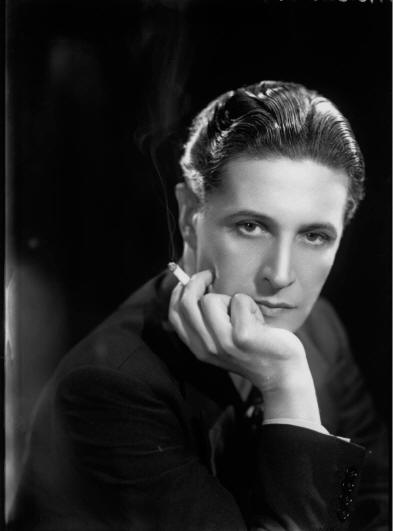
Ivor Novello
by Paul Tanqueray
half-plate glass negative, 1938
Photographs Collection
NPG x180336
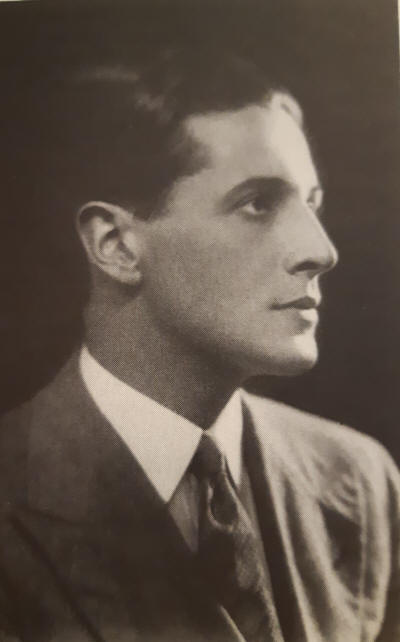
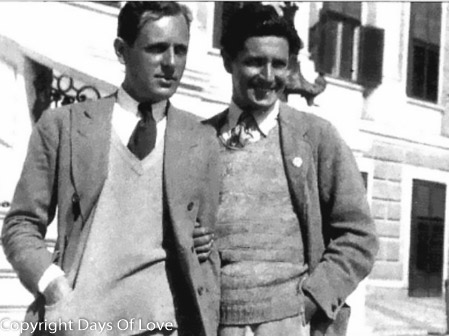
Novello Theatre, London
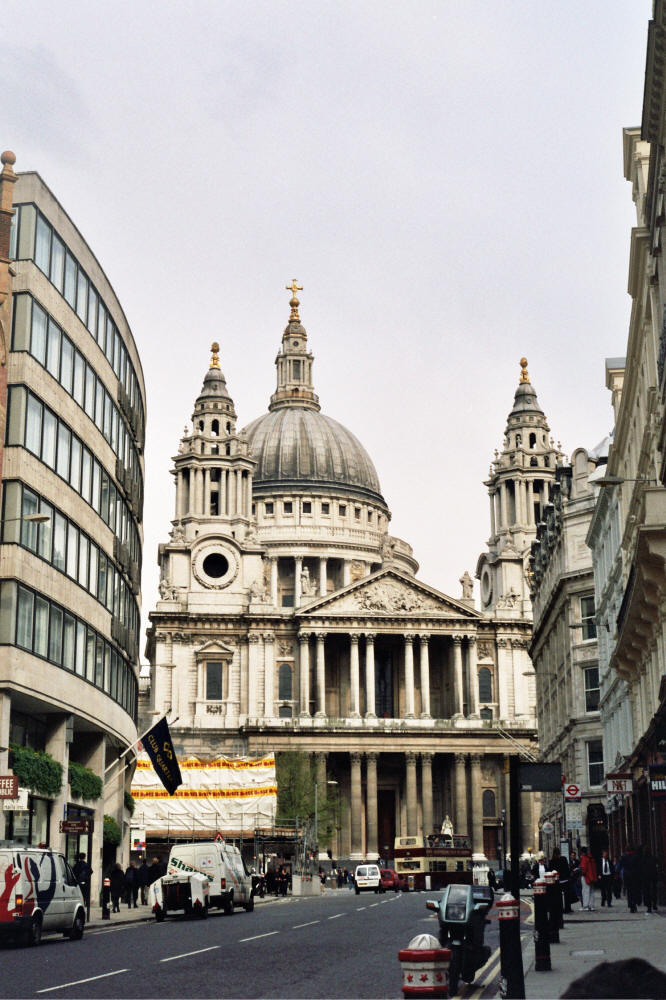
St. Paul's Cathedral, London
St. Paul's Church, London
In the 1920s, he turned to acting, first in British films and then on stage, with considerable success in both. He starred in two silent films directed by Alfred Hitchcock, The Lodger and Downhill (both 1927). On stage, he played the title character in the first London production of Liliom (1926). Novello briefly went to Hollywood, but he soon returned to Britain, where he had more successes, especially on stage, appearing in his own lavish West End productions of musicals. The best known of these were Glamorous Night (1935) and The Dancing Years (1939). From the 1930s, he often performed with Zena Dare, writing parts for her in his works. He continued to write for film, but he had his biggest late successes with stage musicals: Perchance to Dream (1945), King's Rhapsody (1949) and Gay's the Word (1951).
The Ivor Novello Awards were named after him in 1955.
Novello had his first stage success with Theodore & Co in 1916, a production by George Grossmith, Jr. and Edward Laurillard with a score composed by Novello and the young Jerome Kern.[12] In the same year, Novello contributed to André Charlot's revue See-Saw.[2] In 1917 he wrote for another Grossmith and Laurillard production, the operette Arlette, for which he contributed additional numbers to an existing French score by Jane Vieu and Guy le Feuvre.[13] In the same year, Marsh introduced him to the actor Bobbie Andrews, who became Novello's life partner.[2] Andrews introduced Novello to the young Noël Coward. Coward, six years Novello's junior, was deeply envious of Novello's effortless glamour.[6] He wrote, "I just felt suddenly conscious of the long way I had to go before I could break into the magic atmosphere in which he moved and breathed with such nonchalance".[14]
Novello made his stage debut in 1921 in Deburau by Sacha Guitry with Robert Loraine, Madge Titheradge and Bobbie Andrews,[18] and, among other stage engagements, in the next years he played Bingley in an adaptation of Pride and Prejudice with Ben Webster as Darcy and Mary Jerrold as Elizabeth, in a cast that included Ellen Terry, May Whitty and Joyce Carey.[19] At about this time, Novello had an affair with the writer Siegfried Sassoon; it was short lived, but in the words of Sassoon's biographer John Stuart Roberts, Novello "was a consummate flirt who collected lovers as he gathered lilacs".[20]
Novello's last full-scale production in this style, King's Rhapsody (1949), was, in Webb's words, "a selfconsciously romantic counter-blast to the modern musical: crown princes, ballrooms, royal yachts, beautiful princesses and a full-scale coronation".[3] After the rigours of war, this escapist entertainment had strong box-office appeal, and ran for 841 performances.[35] The show starred Novello and the cast included Phyllis Dare, Zena Dare, Olive Gilbert and Bobbie Andrews. It was still running, at the Palace Theatre, when Novello's last show opened. This was Gay's the Word (1951). Novello had written no role for himself; the show starred the comedy actress Cicely Courtneidge and was a departure from his established pattern, balancing the contrasting styles of European operetta and post-war American musicals.[2] The Times commented that the show "cheerfully parodied the very Ruritanian romances to which he owed his most triumphant successes".[7]
Novello died suddenly from a coronary thrombosis at the age of 58, a few hours after completing a performance in the run of King's Rhapsody.[7] He was cremated at the Golders Green Crematorium, and his ashes are buried beneath a lilac bush and marked with a plaque that reads "Ivor Novello 6th March 1951 'Till you are home once more'."[36] He left an estate worth £160,000[37] (£4.61 million when adjusted for inflation).
Only a few weeks before Novello's death, Coward had written of him: "Theatre – good, bad and indifferent – is the love of his life. For him, other human endeavours are mere shadows. ... The reward of his work lies in the indisputable fact that whenever and wherever he appears the vast majority of the British public flock to see him."[5] Grove's Dictionary of Music and Musicians writes of Novello that he was "until the advent of Andrew Lloyd Webber, the 20th-century's most consistently successful composer of British musicals".[3]
The Ivor Novello Awards for songwriting, established in 1955 in Novello's memory, are awarded each year by the British Academy of Songwriters, Composers and Authors (BASCA) to British songwriters and composers as well as to an outstanding international music writer.[38] A scholarship in memory of Novello was established at the Royal Academy of Dramatic Art, and in 1952 a bronze bust of him by Clemence Dane was unveiled at Drury Lane. In St. Paul's, Covent Garden, known as the actors' church, a panel was installed to commemorate Novello, and in 1972, to mark the 21st anniversary of his death, a memorial stone was unveiled in St. Paul's Cathedral.[2]
In 1993, the centenary of Novello's birth was marked by several celebratory shows around the UK, including one at the Players Theatre in London.[17] In 2005, the Strand Theatre, above which Novello lived for many years, was renamed the Novello Theatre, with a plaque in his honour set at the entrance.[39] On 27 June 2009, a statue of Novello was unveiled outside the Wales Millennium Centre in Cardiff Bay. Plaques detailing some of his best-known songs are fitted to the pedestal, along with a dedication to Novello.[40] Novello's memory is promoted by The Ivor Novello Appreciation Bureau, which holds annual events around Britain, including an annual pilgrimage to Redroofs each June. Redroofs was sold after Novello's death and is now a theatre training school.[41]
Novello was portrayed in Robert Altman's 2001 film, Gosford Park, by Jeremy Northam, and several of his songs were used for the film's soundtrack, including "Waltz of My Heart", "And Her Mother Came Too", "I Can Give You the Starlight", "What a Duke Should Be", "Why Isn't It You?" and "The Land of Might-Have-Been".
My published books: